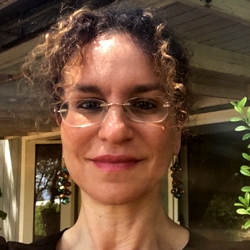

Search Results: responsibility
-
The more we practice NVC by “rote” --going through OFNR (“Observations, Feelings, Needs, Requests”) on automatic-- the more likely our NVC practice would lead to disconnection. The purpose of our NVC practice is to use this NVC "map" (OFNR) to support us in integrating the consciousness of the NVC (eg. operating with the intention to connect, collaborate, etc). Once we let the map drop away, we can engage with the people in our lives in a more heartfelt way. This article explains more about how we can use the map to remind us of our heartfelt consciousness...
-
We can choose our stories of interpretation, and how to respond. And while stories of self-sufficiency can (to a degree) give us more influence over our own lives, they don't erase oppression, war, nor climate change. When stories omit a lens that includes impacts of interdependence, oppression, and structural inequities, stories can also keep us disconnected and blocked from compassion for self and others -- and perpetuating an oppressive status quo. However, with this lens we can make greater compassion and collective liberation possible. Even as the outcome is unknown.
-
Here are 14 more key differentiations that are not, at time of publishing this, on the CNVC key differentiations list. They can be used to support people who are on the path of learning and integrating NVC in making sense of their own understanding of their journey and where they are within it. And it can be used to support people who share NVC with others in offering brief information in support of understanding and learning.
-
In general, criticism is a reactive response discomfort. When someone criticizes, they are not yet able or willing take responsibility for their needs. All criticism is a tragic expression of feelings and unmet needs. When you meet that criticism skillfully you not only care for yourself, you can facilitate clarity, and constructive communication, about what the other person is truly asking for.
-
Learn practical ways to live compassionately through hands-on exercises and demonstrations.
-
Here are five practical ideas for creating simple agreements with a group when conflict arises.
-
Shift your mindset and learn to influence workplace culture with clarity and conscious choice.
-
Shift your view of leadership and learn to respond with clarity, power and purpose in daily life.
-
We each have the power to be the creator of our own inner experience, no matter what is going on externally. The moment you imply wrongness on others, you give power to them. In this excerpt, Aya Caspi shows that the more self-responsibility you take, the more freedom you will have.  
-
Clarity leads to compassion and empowerment with Robert's approach to NVC and transformation.
-
Penny Wassman shares this first workshop exercise as an opportunity to build connection.
-
Trainer tip: Feelings of hurt, anger, fear, and resentment can often sound alike. Fear and excitement have the same physiological effects on us, and are often expressed in the same body language. Clearly and specifically naming our emotions and the intensity level can help us resolve conflicts, with a much greater opportunity to get our needs met.
-
Trainer tip: Be aware of times when you are judging others, demanding, making comparisons, or denying responsibility for your actions. Notice how these communication patterns affect your connection with other people.
-
What would happen if you considered that time is a concept, and that it doesn't rule your life? What would it mean to make all choices based on needs and not on time? Do you obey the external rhythm of the clock over and above the internal rhythm of your life energy? This is an invitation into more responsibility, awareness, honesty, choice and freedom.
-
With practice we can prevent reactivity from overtaking and harming: notice signs of reactivity, bring compassion to it, see reactivity as the misperception of threat and a distortion of what's happening, plus engage and pursue connection and the clarity to weaken reactive impulses. In taking responsibility like this overtime, you can live from your values and from care. And life can get easier for you and others around you.
-
Responding to your own reactivity is an inside job. Robert reveals how your reactions are often a secondary reaction to a triggering stimulus, and that accepting responsibility for your reactions can lead to less blame and more inner peace.
-
Setting boundaries takes being firmly grounded in self-respect and clear about what works for you. This means making conscious choices about how you relate to another or behave in a situation. Such clarity allows you to put your attention and energy where you want it to go. Thus we can have care and compassion without taking responsibility for others, nor feeling guilty when we say “no”. This takes awareness, skills, practice, healing and compassion.
-
Listen to this interview with Gregg Kendrick and one of his clients to learn how to successfully introduce NVC into an organization that is unfamiliar with the concept. Gregg’s client, Dale Neikirk, will be sharing how NVC has supported and improved the results of his insurance company, through Gregg’s masterly facilitation.
-
Healthy differentiation is key to personal growth, learning and thriving relationships. When healthy differentiation is present, you can discern what's true for you and what you are and aren't responsible for in an interaction, and can be fully who you are in the presence of others. There are a number of ways you can become aware of and cultivate healthy differentiation. Let’s look at two here: self-connection and autonomy.
-
Awareness of how we're holding our own and others' needs is important to our development. In learning to value needs, we often go through three stages: passive, aggressive/obnoxious, and assertive/mutual. As we learn and grow, we may relate to the following differently: Whose feelings and needs are important, who is responsible for what, how our choices impact others, and consideration for ourselves and others.
Quick Links

Stay in Touch!
We value your privacy, won't share your email address and you can easily unsubscribe any time.



















